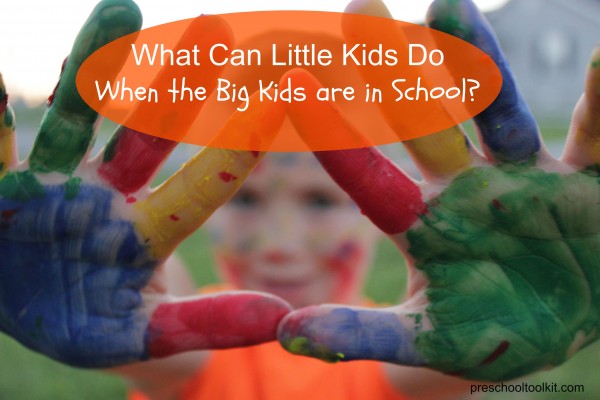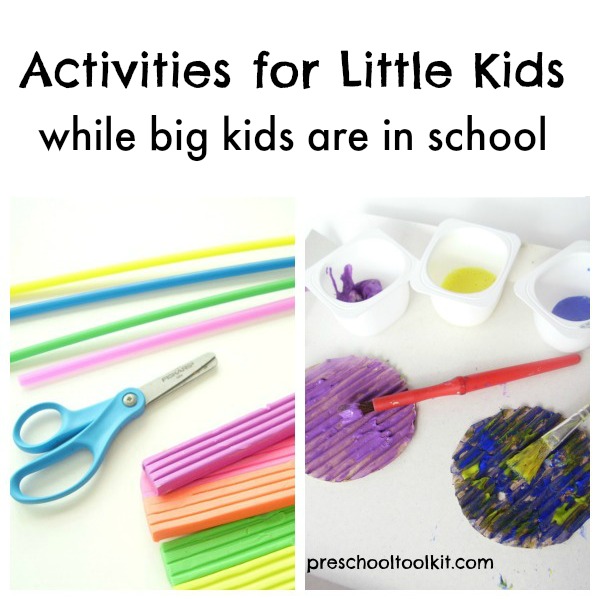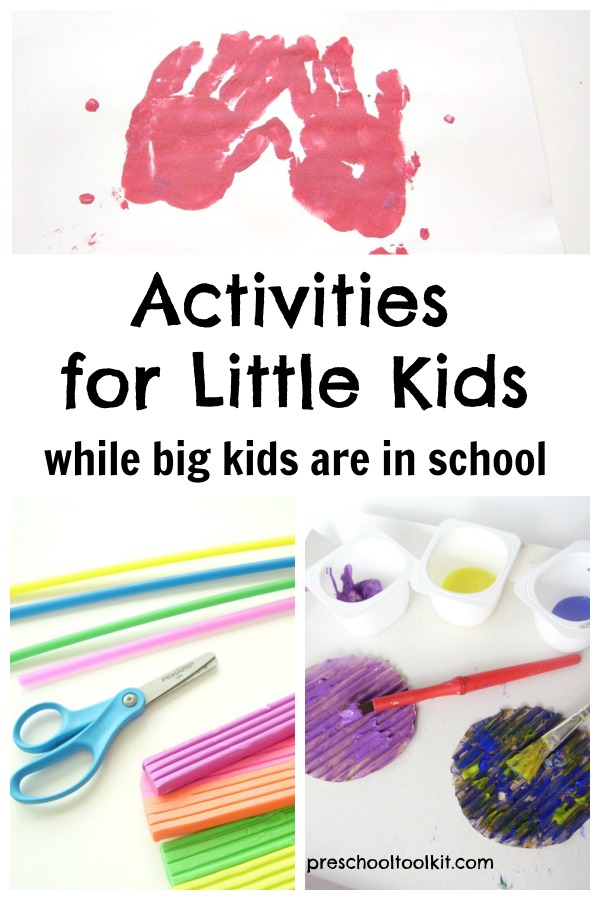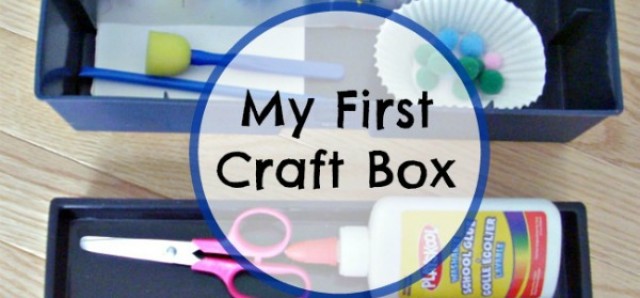What Can Little Kids Do When the Big Kids are in School?
When the school day begins for older kids, younger children at home also benefit from routine and a learning environment. Make the most of your time together by engaging in a variety of hands-on experiences that promote opportunities for learning through play.

This post contains affiliate links. Privacy and Disclosure
After the flurry and excitement of getting big kids back to public school, or settled into a home school routine, little kids might start asking: What can I do?
This generally means younger kids want to be doing things with you. This constitutes a juggling act between running the household and running with the kids!
If your child attends a preschool, or you home school one or more children, a portion of the day may already be scheduled with early learning curriculum.
But whether the kids are at home for the whole day or part of the day, there are things you can do to make your time together fun and productive, and hopefully a little less chaotic!
Related: Helpful tips for planning a preschool program

1. Involve kids in daily routine
When doing housework, kids can help with dusting or sorting laundry. Or set up a play area with a sensory tray, building blocks or play dough near where you are working so you can interact with your child. Then be sure to join in the play when your task is completed.
At lunchtime, provide suitable utensils for kids to help with preparation. They can stir batter for cookies, spread peanut butter on crackers, or mash bananas for a smoothie.
When older kids are doing homework after school, keep paper and pencils on hand for your younger child to keep busy and feel involved.
2. Optimize one-on-one time
During your time together you have opportunities to teach your child self-help skills like toileting and dressing that build self-awareness and independence, concepts that will be beneficial to your child when he reaches school age.
Spend a little time practicing new skills with your child that require your attention and support, such as drawing and printing letters, or cutting with scissors.
3. Access community programs
Sign up for swimming, art or music lessons.
Attend play groups, story times or workshops for your child's age group.
Visit a library or museum or other other public buildings.
4. Play together
Have a few go-to play options that you can do together.
- Create a craft box with art supplies.
- Bake cookies or muffins together.
- Plan to spend some playtime outside. Even without playground equipment there are lots of options for outdoor play.
5. Support independent play
Make a few toys and materials available for your child to access on his own.
- Place puzzles, games and books on a low shelf within easy reach.
- Fill one basket with blocks, another with puppets, another with musical instruments.
Answer questions or offer comments when needed, otherwise allow your child to experience independent play.
6. Be spontaneous
Kids are often competing for your attention with the daily routine of dressing, running errands, cleaning up and making meals. Stray from the norm occasionally to build a blanket fort and stay in your pajamas until noon, or leave the chores behind you for awhile to have a picnic in the park.
You can help prepare your child for more formal schooling through working, playing and reading together in the early years. By creating play spaces, providing age-appropriate activities and materials, and encouraging kids to be helpers, you provide learning opportunities that are both fun and meaningful.
Related: Back to School Tips for a Smooth Transition



